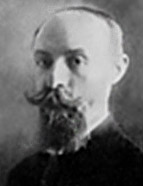

In addition to the classes he taught at the Sorbonne for over 25 years and the numerous lectures he gave to disseminate Portuguese literature and history to a wider audience, much of his work was published in periodicals, including the Revue latine, the Revue critique, the Revue de littérature comparée, the Revue de l’Amérique latine, O Instituto and Biblos, both in Coimbra. However, it was in the columns of the Bulletin hispanique, a leading journal of Iberian studies in the French academic world, that he published most of his studies. Between 1899 and 1953, he wrote more than 80 reviews and articles on subjects related to Portugal and, to a lesser extent, Brazil. These works were primarily aimed at university teachers and students who were unfamiliar with Portugal. Georges Le Gentil thus took on the role of disseminating intellectual and editorial news from Portugal. In his articles, he drew numerous comparisons between Portugal and Spain in order to highlight, for a readership more familiar with Spanish affairs, the “obvious parallels” that often exist in the intellectual life of both countries, while never failing to acknowledge the autonomy of each. See the series of articles entitled “Le mouvement intellectuel au Portugal”, published in the Bulletin hispanique between 1920 and 1944, in which he closely follows the renewal of the Portuguese historiographical tradition, welcoming, for example, the founding of the Portuguese Society for Historical Studies and its quarterly journal, Revista de História (1912-1928). He also praised the importation of a new historical trend that sought to react against the tradition of philology and positivism represented for many years by Teófilo Braga in Portugal. This current was embodied in the figure of the director of that Society, Fidelino de Figueiredo, a specialist in literary history whose works are praised by Georges Le Gentil: the reference to Figueiredo’s efforts to modernise the theory and methodology of literary studies echoes Georges Le Gentil’s own method, inspired by Lanson. In a review dedicated to the historian António Ferrão, whose work allows for a re-evaluation of the legacy of Pombalism, he praises the use of a historical theory that is close to the current embodied in France by the Revue de synthèse historique, founded by Henri Berr in 1900, in rejecting excessive erudition and compartmentalisation of disciplines. Through these articles, Le Gentil offers a very broad overview of Portuguese historiography and highlights the country’s intellectual greatness, without however renouncing scientific rigour and the art of criticism.
This work is financed by national funds through FCT - Foundation for Science and Technology, I.P, in the scope of the projects UIDB/04311/2020 and UIDP/04311/2020.
